An Inkling of the Internal Life: The Novels of Charles Williams
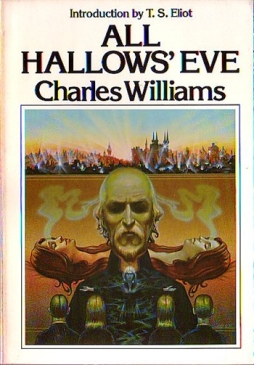 I observed the other day that the end of October’s a good time for reading classic weird fiction. This morning, as young ghosts and goblins of all sorts are preparing their evening’s depredations, I’m writing about a subject I’ve wanted to deal with for a while: the novels of Charles Williams. Williams was born in 1886, and died in 1945; a scholar, poet, editor, and theologian as well as a novelist, he’s probably the third-best-known of the informal group of Oxford Christians called the Inklings, behind C.S. Lewis and J.R.R. Tolkien. A Christian fascinated with the occult, his novels are tales of the supernatural and the numinous at play in the ‘real’ world. He wrote of ghosts, magi, and the Holy Grail, among other things, and his stories, laboured and profound, are some of the strangest fantasies I know.
I observed the other day that the end of October’s a good time for reading classic weird fiction. This morning, as young ghosts and goblins of all sorts are preparing their evening’s depredations, I’m writing about a subject I’ve wanted to deal with for a while: the novels of Charles Williams. Williams was born in 1886, and died in 1945; a scholar, poet, editor, and theologian as well as a novelist, he’s probably the third-best-known of the informal group of Oxford Christians called the Inklings, behind C.S. Lewis and J.R.R. Tolkien. A Christian fascinated with the occult, his novels are tales of the supernatural and the numinous at play in the ‘real’ world. He wrote of ghosts, magi, and the Holy Grail, among other things, and his stories, laboured and profound, are some of the strangest fantasies I know.
I’ll start with some biographical detail (much of which I found in Humphrey Carpenter’s book The Inklings). Williams was hired by the Oxford University Press in 1908, and soon rose to become an editor. His first book of poems was published in 1912. In 1917 Williams was married, and in the same year was initiated into the Fellowship of the Rosy Cross, a successor organisation to the faction-ridden occult group called the Order of the Golden Dawn. He continued to write poetry through the 1920s, and in 1927 wrote two masques, a kind of ceremonial drama. He’d begun lecturing at local institutes, and soon after the masques wrote his first novel, Shadows of Ecstasy. He couldn’t find a publisher for it at first, but his second book, War in Heaven, made it to print in 1930. Three more novels followed: Many Dimensions in 1931, then The Place of the Lion and The Greater Trumps in 1932. Shadows of Ecstasy was finally published in 1933.
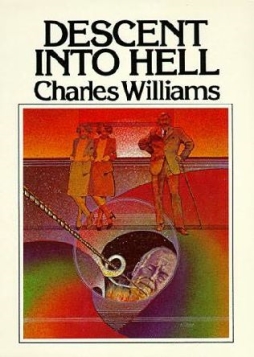 Williams’ books weren’t necessarily best-sellers, but T.S. Eliot and C.S. Lewis both became fans of his work. By this point, Williams’ lectures had also attracted a body of student-followers, and he was in the middle of an incredibly prolific period: among other things, he wrote history and historical biographies, works of criticism, plays, and poetry — including a fascinating book of Arthurian verse, Taliessin Throgh Logres. But his sixth novel, Descent Into Hell, was rejected at first; only Eliot, a director at Faber & Faber, was prepared to publish it (in 1937). In 1939, the Oxford Press moved its offices from London to Oxford, and Williams truly became a part of the informal gatherings of ‘Inklings;’ Williams and Lewis became good friends, but it seems Tolkien was, by his own account “unsympathetic to Williams’ mind.” Urged on by Eliot, Williams began considering another novel in 1940, but didn’t begin it until 1943. All Hallows’ Eve was published in 1944, a few months before another volume of Arthurian verse, The Region of the Summer Stars. Unfortunately, in May of 1945 a routine operation on his digestive system went wrong, and Williams passed away.
Williams’ books weren’t necessarily best-sellers, but T.S. Eliot and C.S. Lewis both became fans of his work. By this point, Williams’ lectures had also attracted a body of student-followers, and he was in the middle of an incredibly prolific period: among other things, he wrote history and historical biographies, works of criticism, plays, and poetry — including a fascinating book of Arthurian verse, Taliessin Throgh Logres. But his sixth novel, Descent Into Hell, was rejected at first; only Eliot, a director at Faber & Faber, was prepared to publish it (in 1937). In 1939, the Oxford Press moved its offices from London to Oxford, and Williams truly became a part of the informal gatherings of ‘Inklings;’ Williams and Lewis became good friends, but it seems Tolkien was, by his own account “unsympathetic to Williams’ mind.” Urged on by Eliot, Williams began considering another novel in 1940, but didn’t begin it until 1943. All Hallows’ Eve was published in 1944, a few months before another volume of Arthurian verse, The Region of the Summer Stars. Unfortunately, in May of 1945 a routine operation on his digestive system went wrong, and Williams passed away.
So Williams wrote seven volumes over a bit more than fifteen years. What’s so strange about them? To start with, they’re definitely inspired in part by his theological ideas, especially his notion of ‘co-inherence,’ by which one person can take upon themselves the emotions and emotional burdens of another person. But more than that, there’s a kind of stringency to the prose: there’s nothing wasted, but also little flesh on the bones of the story. There’s little physical or sensory detail. The plots are often oddly shaped, too, though Williams grew stronger at story structure in his later books, as they grew simpler. In general, there’s a movement over the course of the novels from descriptions of large-scale social upheavals caused by magic to smaller stories focussing on a specific family or group of people. This tends to mean the later books are less wildly imaginative and adventurous, but also means that Williams is able to examine the spiritual states of his characters in almost Proustian detail.
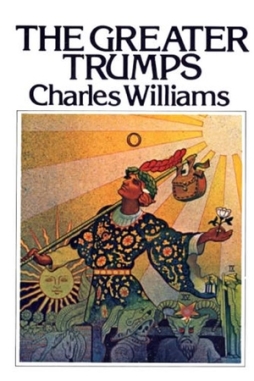 Let’s look at the novels one by one. Shadows of Ecstasy deals with a seemingly immortal magus-figure named Nigel Considine, who, we learn as the book goes on, has masterminded an uprising of most of the peoples of Africa against European domination. The Africans, backed by magic, overthrow the colonisers and launch attacks against Europe, including a bombing raid against London. Williams does a good job, I feel, in imagining the confused situation in England as the war begins and continues, including descriptions of racial tensions and race riots.
Let’s look at the novels one by one. Shadows of Ecstasy deals with a seemingly immortal magus-figure named Nigel Considine, who, we learn as the book goes on, has masterminded an uprising of most of the peoples of Africa against European domination. The Africans, backed by magic, overthrow the colonisers and launch attacks against Europe, including a bombing raid against London. Williams does a good job, I feel, in imagining the confused situation in England as the war begins and continues, including descriptions of racial tensions and race riots.
War in Heaven describes a conflict between an Archdeacon and a black magician over the Holy Grail, which a cantankerous archaeologist named Sir Giles Tumulty has proven is in a village church not far from London. There’s something ludicrous about the idea, and Williams doesn’t seem interested in making it credible. Only two or three characters really seem to care about the existence of the Grail. An appearance by Prester John is well-handled, but seems out of register with the rest of the book. A minor character rhapsodising over the books of P.G. Wodehouse may nod at the fact that the whole thing, bound together with coincidences, has something of the highly-patterned and artificial feel of a Wodehouse story without Wodehouse’s lightness of style.
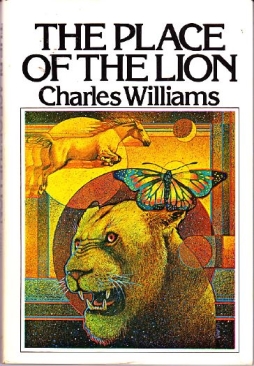 Giles Tumulty returns in Many Dimensions. As the book begins, he’s uncovered Solomon’s crown, which is set with a magical stone. The stone allows the holder to move at will through time and space — and it can be replicated effectively at will. Williams effectively describes the ramifications this would have for transport industries and international economies, while also describing the sense of blasphemy that would see a holy artifact debased into a merely functional means of getting from point A to point B. This book, to me, is the high point of Williams’ early novels, his most effective blending of the supernatural with the worldly and the political.
Giles Tumulty returns in Many Dimensions. As the book begins, he’s uncovered Solomon’s crown, which is set with a magical stone. The stone allows the holder to move at will through time and space — and it can be replicated effectively at will. Williams effectively describes the ramifications this would have for transport industries and international economies, while also describing the sense of blasphemy that would see a holy artifact debased into a merely functional means of getting from point A to point B. This book, to me, is the high point of Williams’ early novels, his most effective blending of the supernatural with the worldly and the political.
The Place of the Lion is held by some to be Williams’ best, but personally I think it’s better seen as a movement away from his early large-scale plots to something more intimate. In this book, archetypes summoned by yet another magus-figure become concrete; they manifest in a small town, possess some of the townsfolk, and threaten to overwhelm reality itself. These ‘archetypes’ are an odd mix of Platonic (or Neo-Platonic) ideal forms and medieval angelology. The concept’s fascinating, but I feel tended to get away from Williams a little; the main characters seem to have little connection to events in the village, and their efforts to understand and stop the magic are almost incidental to the story — the resolution is, essentially, one of the main characters going off and thinking very hard to himself. What’s happening here, I feel, is that Williams is becoming less and less fascinated with the external action, and more involved with the purely internal spiritual states of his characters. That was always the case to some extent in the earlier books as well, but here the internal firmly takes precedence over the external.
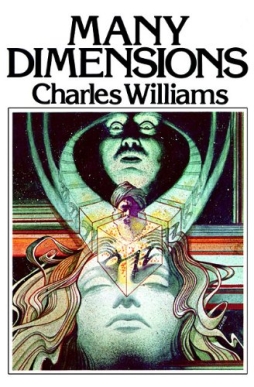 You can see this clearly in his next book, The Greater Trumps. Here a legacy containing the first of all tarot decks comes to the father of a woman engaged to a Romany (Williams writes “gipsy,” and leans heavily on the formerly-imagined connection with Egypt) man whose family has passed down an intricate moving statue representing the tarot trumps. With the deck, the movement of the statue’s various parts can be understood, and the future foretold. The deck itself is vastly powerful on its own, capable of calling a storm and summoning supernatural powers. Ultimately, though, the book focusses on the internal emotional and spiritual stresses of the characters: it takes place mostly in a single house, with a small cast — two families and some servants.
You can see this clearly in his next book, The Greater Trumps. Here a legacy containing the first of all tarot decks comes to the father of a woman engaged to a Romany (Williams writes “gipsy,” and leans heavily on the formerly-imagined connection with Egypt) man whose family has passed down an intricate moving statue representing the tarot trumps. With the deck, the movement of the statue’s various parts can be understood, and the future foretold. The deck itself is vastly powerful on its own, capable of calling a storm and summoning supernatural powers. Ultimately, though, the book focusses on the internal emotional and spiritual stresses of the characters: it takes place mostly in a single house, with a small cast — two families and some servants.
Descent Into Hell follows events surrounding the staging of a new play; there is a haunting, and a succubus that seduces a military historian advising the production. The nuts-and-bolts of putting the play on stage doesn’t really enter the story, and the personal politics around the production do so only slightly; the play gives a reason for the characters to all come together, and a sort of temporal framework against which events can take place. So the plot’s well-structured, and Williams takes another step into investigating the interiority of his characters. By this point, in fact, that interior spiritual state has clearly become the main point of interest. The plot is simple, slow, and heavily symbolic; but the story works. The contrasting hauntings succeed, as does the contrast between the real world and the supernatural dream-world of ghosts and demons. It’s not an easy read, being so deliberate in its pacing, and having no simple adventure-element, but it might be Williams’ strongest novel.
 All Hallows’ Eve is a suitable follow-up. Another evil magus has nefarious plans for his daughter, conceived in a mystic ceremony; but this only comes out as the book moves along. We begin with a dead woman, Lester, killed in a plane accident and surviving as a ghost in an otherworldly City, along with her friend Evelyn, killed in the same crash. The book follows them, Lester’s husband Richard, and Richard’s painter friend Jonathan, who is engaged to the magus’ daughter Betty. The plot here is complex, but feels natural in a way that Williams’ earlier stories often did not, and perhaps even more intensely than in Descent Into Hell the states of the souls of the various characters are examined and depicted hand in hand with the development of the plot. The ghosts of Lester and Evelyn move in a symbolic world reflecting our own, interacting at times with living reality, and create a distinct feel for the book, a quiet vision of transition to and through the afterlife.
All Hallows’ Eve is a suitable follow-up. Another evil magus has nefarious plans for his daughter, conceived in a mystic ceremony; but this only comes out as the book moves along. We begin with a dead woman, Lester, killed in a plane accident and surviving as a ghost in an otherworldly City, along with her friend Evelyn, killed in the same crash. The book follows them, Lester’s husband Richard, and Richard’s painter friend Jonathan, who is engaged to the magus’ daughter Betty. The plot here is complex, but feels natural in a way that Williams’ earlier stories often did not, and perhaps even more intensely than in Descent Into Hell the states of the souls of the various characters are examined and depicted hand in hand with the development of the plot. The ghosts of Lester and Evelyn move in a symbolic world reflecting our own, interacting at times with living reality, and create a distinct feel for the book, a quiet vision of transition to and through the afterlife.
I think Williams becomes a better writer over the course of the books, and I think he narrows his focus to deal with exactly what interests him. His approach is always original; what I’ve described as ‘ghosts’ and ‘demons’ are much richer conceptually than those words suggest. And his understanding of morality and theology is highly individual; when a man tries to kill his fiancé’s father, she’s urged to forgive him — and somehow, in context, you see or feel that this makes sense. Stylistically, Williams can be convoluted, and for the most part doesn’t even try to describe fast-paced action, but is always thoughtful. If he’s not as accessible as C.S. Lewis, for example, his work is typically more complex.
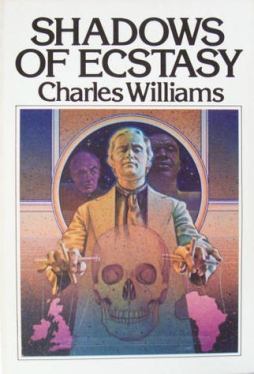 There are I think some flaws in his writing. To start with, it’s worth observing that in some ways Williams was a man of his time (and place). His approach to gender is relatively traditional, hence essentialist. His approach to race and ethnicity is fascinating, being in some ways advanced and in some ways being much of his era. He seems to me to display little conscious racism (maybe the most notable exception being some passages of All Hallows’ Eve that seem to describe a type of replacement theology at least bordering on the anti-semitic) and over the seven books writes strong Zulu, Muslim, Jewish, and Romani characters — but then also depicts them firmly as others, contrasting, for example, an ‘African’ approach to poetic and religious ecstasy with a ‘European’ one. I mention all this because, especially in the earlier books, Williams was interested in mixing the magical and the world-as-it-is; when the world-as-it-is seems oversimplified (as when Muslims in Many Dimensions are apparently able to incite “the whole of Islam” against the thieves of Solomon’s stone), then the book feels flawed.
There are I think some flaws in his writing. To start with, it’s worth observing that in some ways Williams was a man of his time (and place). His approach to gender is relatively traditional, hence essentialist. His approach to race and ethnicity is fascinating, being in some ways advanced and in some ways being much of his era. He seems to me to display little conscious racism (maybe the most notable exception being some passages of All Hallows’ Eve that seem to describe a type of replacement theology at least bordering on the anti-semitic) and over the seven books writes strong Zulu, Muslim, Jewish, and Romani characters — but then also depicts them firmly as others, contrasting, for example, an ‘African’ approach to poetic and religious ecstasy with a ‘European’ one. I mention all this because, especially in the earlier books, Williams was interested in mixing the magical and the world-as-it-is; when the world-as-it-is seems oversimplified (as when Muslims in Many Dimensions are apparently able to incite “the whole of Islam” against the thieves of Solomon’s stone), then the book feels flawed.
Along those same lines, the sense of immersion is often impaired by Williams’ use of coincidence to smooth the way for his plots. Particularly in the early books, a character or group of characters will meet another character or group who just happens to be crucial to the ultimate unfolding of the plot. You could argue that this creates a sense of divine providence, I suppose, but one could also argue that the artificial feel is deliberate: as I noted above, recalling Wodehouse, it creates a sense of farce. Williams is less concerned with dramatic structure, I think, than with his characters. So conflict is frequently underplayed, and climaxes to his novels are often purely internal. The external action in the early books feels almost like a distraction, a necessary mechanism; though by the time of his last two or three novels, he’s simplified the movements of his plots to the point that they feel well-integrated into his overall themes.
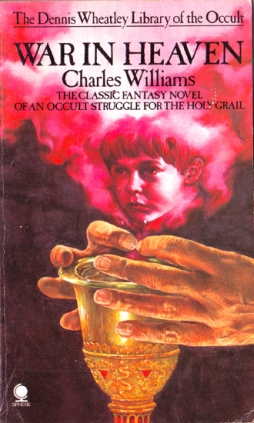 Oddly, given this focus on the interior life, I find his characters not particularly individual. Because Williams is interested in their spiritual states in ways that must have universal application, their own distinctness as people sometimes feels lost. Eliot I think was perceptive to note that Williams was interested only in those aspects of his characters that affected his story and themes: “Only as much of the reality of each character is given as is relevant: the rest could be supplied.” On the one hand, I think Williams’ character work, as with much else, grew steadily in strength. On the other, his most interesting (if not most profound) character came in his second and third books, Sir Giles Tumulty, a kind of anti-Indiana Jones: he’s an archaeologist who digs up Judeo-Christian relics, but for his own use, with an eye to creating havoc — Tumulty’s a brilliant old man, but spiteful, brutal, and acid-tongued.
Oddly, given this focus on the interior life, I find his characters not particularly individual. Because Williams is interested in their spiritual states in ways that must have universal application, their own distinctness as people sometimes feels lost. Eliot I think was perceptive to note that Williams was interested only in those aspects of his characters that affected his story and themes: “Only as much of the reality of each character is given as is relevant: the rest could be supplied.” On the one hand, I think Williams’ character work, as with much else, grew steadily in strength. On the other, his most interesting (if not most profound) character came in his second and third books, Sir Giles Tumulty, a kind of anti-Indiana Jones: he’s an archaeologist who digs up Judeo-Christian relics, but for his own use, with an eye to creating havoc — Tumulty’s a brilliant old man, but spiteful, brutal, and acid-tongued.
If I’m emphasising Williams’ development over the course of the novels, I still don’t want to imply that the early books are unrewarding. I think they’re more external, but at the same time that engagement with the outer world, with politics and economics, has its own interest. I do feel, though, that Williams was struggling in those books to integrate the ideas in which he was interested with the form of the supernatural novel that he was developing. While you can say that his books are in the tradition of theosophical fiction going back to Marie Corelli, to me they’re also unusual in the way they depict the supernatural having such an extreme effect on the political world. Ultimately, I think Williams found a more profound theme, or more profound way to approach theme, by narrowing his focus; oddly, his sense of drama seems to get more assured at the same time, as he develops his ability to use the fantastic to get at the aspects of character that interest him. The integration of fantasy and philosophy becomes more complete.
But what, then, is Williams’ philosophical concern? What are his themes, that concern him so much? Obviously there’s some change and development over the course of his books. But I think a few general statements can be made. I think clearly he’s interested in visionary experience, and in mystical experience, and in the integration of these things with the world of everyday experience. He’s also interested in love, in the varieties of experience of love, and particularly its spiritual significance. He’s interested in the way human beings can feel for and suffer for each other.
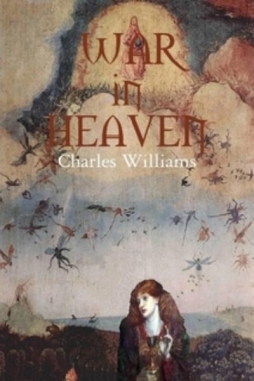 Williams was a Christian, but his Christianity seems to have been of a singularly unusual sort; so his concern with mysticism is sometimes specifically Christian, but at other times more general, a part of a greater concern with the elevation or degradation of the spirit in general. The magi of which Williams wrote are powerful but typically flawed individuals, whose presence serves as a spur to the other characters, provoking self-reflection and growth. Usually, his books end after some sort of spiritual development — not an epiphany, not a sudden realisation, but the inevitable result of pondering on earlier events in the novel. Ultimately, as I read them, these are books about the approach to the divine, and the different paths different souls travel.
Williams was a Christian, but his Christianity seems to have been of a singularly unusual sort; so his concern with mysticism is sometimes specifically Christian, but at other times more general, a part of a greater concern with the elevation or degradation of the spirit in general. The magi of which Williams wrote are powerful but typically flawed individuals, whose presence serves as a spur to the other characters, provoking self-reflection and growth. Usually, his books end after some sort of spiritual development — not an epiphany, not a sudden realisation, but the inevitable result of pondering on earlier events in the novel. Ultimately, as I read them, these are books about the approach to the divine, and the different paths different souls travel.
Williams’ books are not necessarily easy reads, though they’re often quite pleasurable. It’s difficult at first to grasp what he’s doing; his method, the way he integrates story and theme, seems to me to be different than almost any other writer I can think of. You don’t know when what seems to be a kind of proto-urban-fantasy tale will suddenly give way to a description of spiritual inwardness or of outright vision that has no immediate plot significance. I’ve avoided quoting any of these because they’re typically extremely detailed; I mentioned Proust above, and in these passages his paragraphs, like Proust’s, sprawl on for a page or two. But that sense of detail, that focussed interrogation of the supernatural experience, seems to me the more telling element in the comparison. Williams’ books are grounded in real experience, and in the experience of reality. They’re not like other fantasies, and not like much else that I know. For that alone, they’re worth reading.
Matthew David Surridge is the author of “The Word of Azrael,” from Black Gate 14. His new ongoing web serial is The Fell Gard Codices. You can find him on facebook, or follow his Twitter account, Fell_Gard.
I own all these novels, but it’s been a long time since I’ve revisited then. Excellent article!
For the record, what sticks with me after all this years is the amazing animated Tarot board from The Greater Trumps. I want one for myself, hazardous to my sanity though it may be.
Thanks, Mike!
I really agree about the moving tarot sculpture — I hadn’t read The Greater Trumps in years before sitting down to go through all the novels for this article, and that was definitely one of the bits in them that I remembered.
I also own them. Someday I’ll read them. Someday.
Just stumbled on the article when I Goggled Charles Williams. I’ve loved his novels for years, because (as you say) they’re like nothing else I’ve ever read, and because they explore spirituality in the most moving ways. I think “All Hallow’s Eve” is my favorite, and passages in it have brought me to tears; it convinces me of the possibility of a spiritual world and a God in a way no carefully laid-out argument could. And “Descent Into Hell” frightens me in a way no horror book or movie could by its chilling depiction of slow damnation. Thank you for a fascinating article!
[…] Image from https://www.blackgate.com/2013/10/31/an-inkling-of-the-internal-life-the-novels-of-charles-williams/ […]